
Every young person has to make life-changing decisions about their sexual and reproductive health. However many of them cannot access clear, evidence-based information. IPPF's comprehensive sexuality education programmes enable young people to make informed decisions about their sexuality and health, while building life skills and promoting gender equality.
Articles about Comprehensive Sex Education
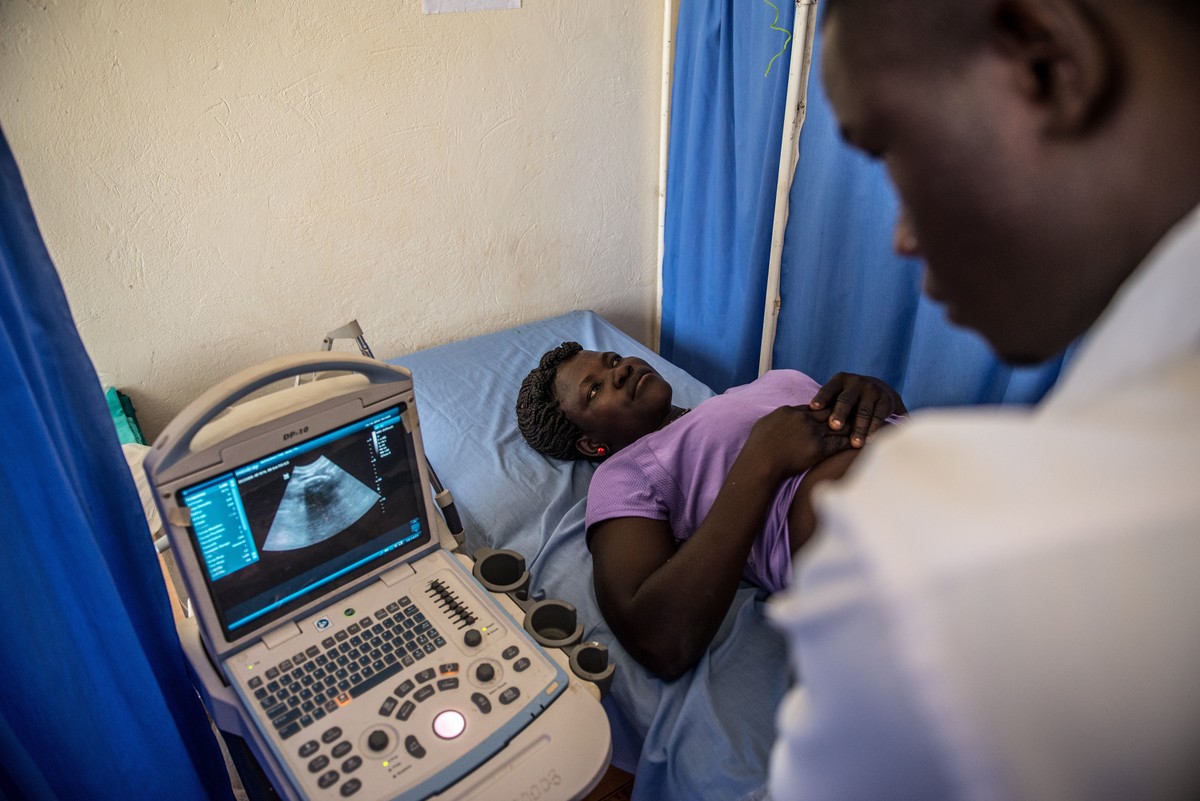
The human cost of the Global Gag Rule
IPPF has now compiled data outlining how the reinstatement of the Global Gag Rule will affect people’s health around the world. Our global network of local partners delivers more than 300 services every minute of every day. During President Trump’s term, we will forego approximately USD$100m funding from the US government, which would have supported our family planning and HIV programmes for women with the greatest need for these health care services. The regions most affected are sub-Saharan Africa, South Asia and Latin America and the Caribbean. In practical terms, this level of funding could have prevented: 20,000 maternal deaths 4.8 million unintended pregnancies 1.7 million unsafe abortions It could have also provided: treatment to 275,000 pregnant women living with HIV to protect their health and help prevent transmission of HIV to their infants 70 million condoms to prevent unintended pregnancies, HIV and other STIs 725,000 HIV tests to enable people to know their HIV status The foregone funding could have also treated 525,000 sexually transmitted infections. As an organisation that seeks to protect and improve the lives of women, men and children around the world, IPPF and its partners in 171 countries will not sign a policy that denies human rights and puts the lives of women at risk. We are working with governments and others to bridge this new funding gap and help keep our clinics open. Sign up now to get updates on how you can be involved and make a difference. JOIN OUR THUNDERCLAP TO SPREAD THE MESSAGE SUPPORT OUR WORK WITH A DONATION
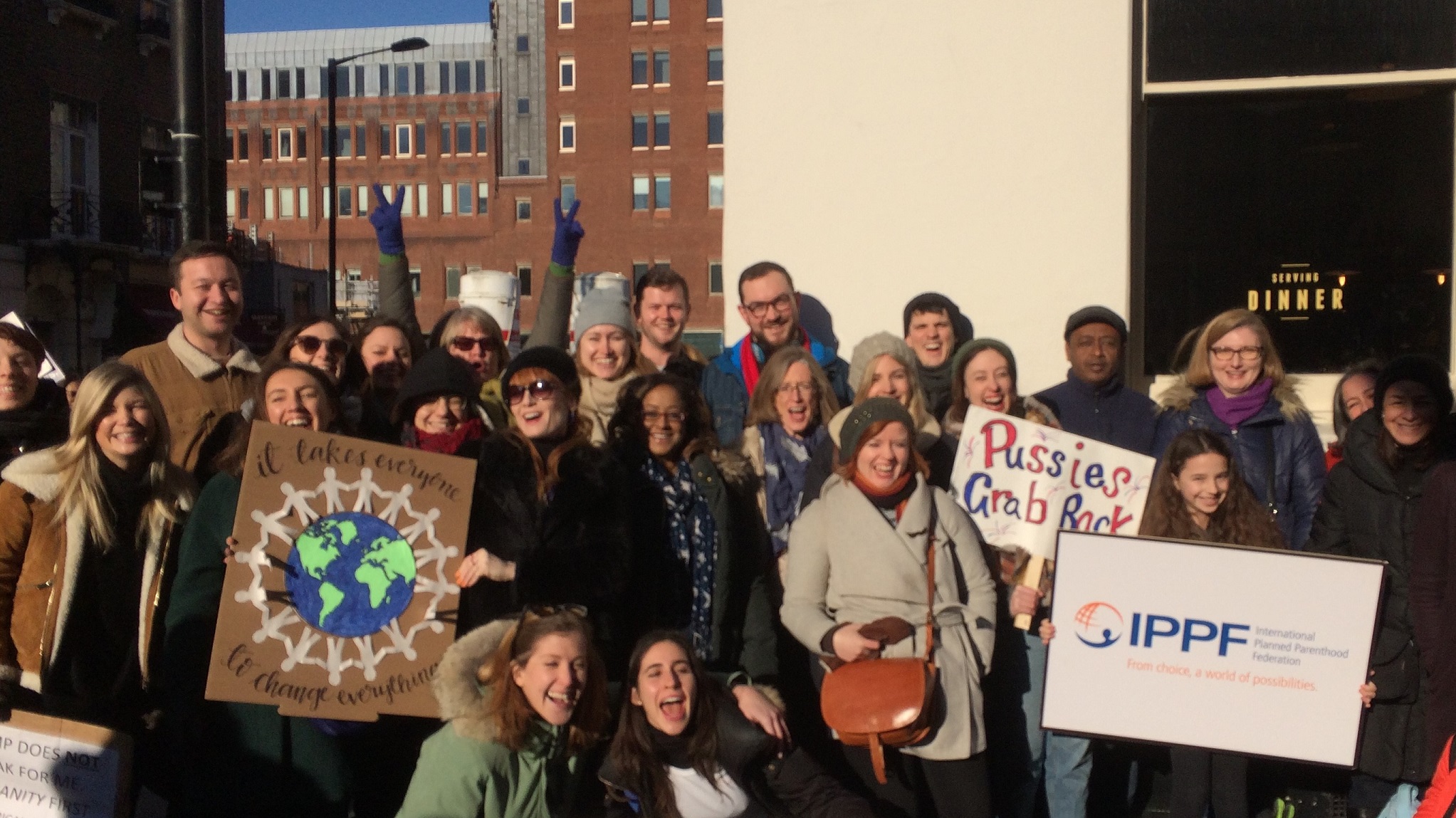
IPPF speaks out against the Global Gag Rule
IPPF stands to lose $100 million USD received from the US, even though none of that money is used for abortion services. IPPF spoke out against Trump's reinstatement of the harmful Global Gag Rule (aka Mexico City Policy) to both BBC's Woman's Hour radio show and Australia's ABC 24 News. Our Member Associations have also spoken out against this violation of rights that service restrictions will lead to: "Funding cuts would mean we can't support 37 districts including supporting Government of Nepal effort on sexual and reproductive Health and rights. Additionally we would not be able to run community clinics or mobile health days or train health care workers. The impact also means we would lose essential medical staff like nurses, doctors and health experts. It would be devastating. " - Ms. Amu Singh Sijapati, President of Family Planning Association of Nepal As one of the biggest family planning organizations in the world, we work in over 170 countries to deliver integrated sexual and reproductive health services to the most marginalized women and communities around the globe. Funding cuts will limit the range of services and restricts how well they can be accessed in remote and rural areas by those who can’t afford transport, food or housing, and will now have to pay for services from other providers who charge more for treatment. "Our projects make a real difference. Young people living with HIV face stigma and violence which is a big problem for girls here in Kenya. These issues create barriers for getting care which means higher risks of ill health and harm. It’s vital that we work within local communities and offer services that recognise these specific needs. Without further funding FHOK may be unable to continue this support, scale up or replicate in other parts of Kenya. It would mean denying services to those who need them the most." - Edward Marienga, Executive Director -Family Health Options of Kenya Putting a ‘gag order’ on local providers who know the specific laws and needs of their communities flies in the face of common sense and reason,” said Marta Royo, Executive Director of Profamilia Colombia, an IPPF Member Association. "The impact of the rule under other U.S. Administrations has been dramatic—many organizations were forced to slash services or even shut their doors because they lost US funding for even mentioning abortion. As a result, women lost access to maternal health care, treatment for HIV and contraception that would help them prevent unintended pregnancies in the first place. Unsafe abortion is one of the leading causes of maternal death in the world and evidence has shown that denying women’s access to abortion doesn’t reduce the incidence of abortion; it just makes it unsafe.” WANT TO GET INVOLVED? SUBSCRIBE NOW TO GET UPDATES FROM IPPF SUPPORT OUR WORK WITH A DONATION View my Flipboard Magazine.
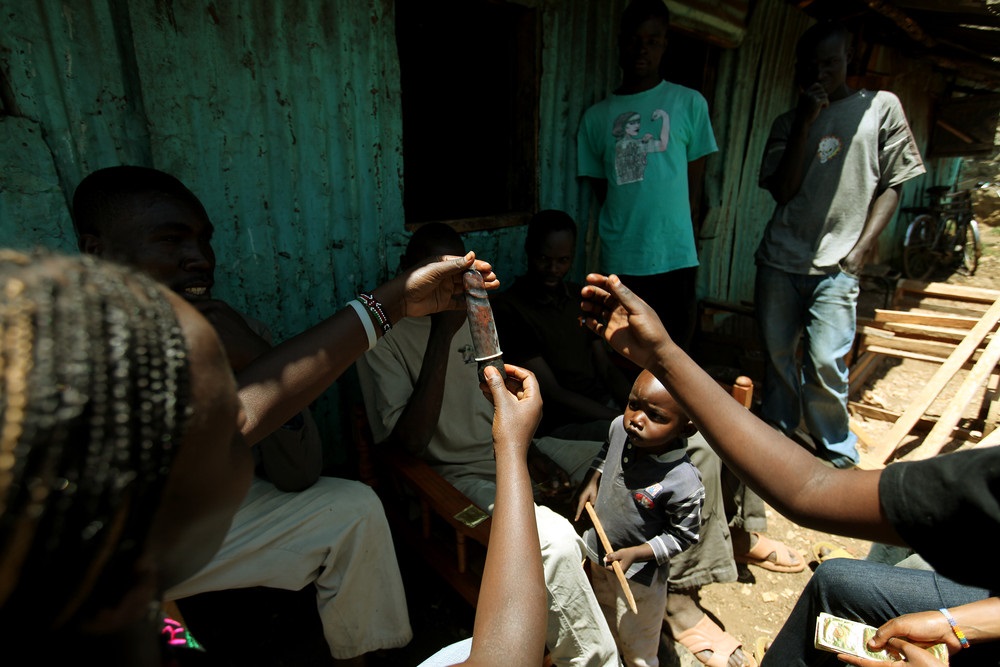
SIFPO 2: Family Health Options Kenya (FHOK)
FHOK is a leading service delivery organisation that complements the efforts of the Ministry of Health by reaching out to marginalized, underserved and vulnerable populations including young people, with information and services on voluntary SRH/FP services. In order to improve FP service delivery to adolescents, FHOK together with Sustainable Networks Project, HC3 Project and the Population Council is implementing the GREAT (Girls, Reproductive Health, Empowerment, Access and Transformation) project in Homa Bay County. The activities of the GREAT project will contribute to the objectives of the Homa Bay Family Planning Strategic Plan 2015-2019 which prioritizes: SIFPO2 Support in Kenya includes: Training health care workers and community based workers in integrated family planning and HIV service delivery for young people. Increasing access to voluntary FP services to 4,000 young people 15-24 years (including those living with HIV and AIDS) through service delivery points at static facilities, outreaches and community health workers Increasing access to high quality community-based information on family planning for young girls including those living with HIV and AIDS Supporting the sexual and reproductive health needs among young people 15-24 years (including those living with HIV and AIDS) by implementing a social behaviour change Results in 2016: 20 facility based service providers from 13 public facilities were trained to provide FPHIV integrated services both within their facilities and through outreach services 20 community members recruited to be new community health workers (CHWs) were trained on all FP methods and how to mobilize communities for FP. As a result, CHWs in focal districts now provide condoms and pills and make referrals for the other methods 20 youth living with HIV and AIDS were trained in all FP methods information. As a result, the young people are providing condoms and education on FP to their peers and making referrals as appropriate. The 20 peers were chosen in consultation with HIV community groups including DREAMS implementing partners 799 clients were served through the project The Support for International Family Planning Organizations 2 – Sustainable Networks project is a five-year cooperative agreement funded by the U.S. Agency for International Development under Agreement No. AID-OAA-A-14-00038, beginning May 13, 2014. The information provided in this document is not official U.S. government information and does not necessarily represent the views or positions of the U.S. Agency for International Development.

IPPF joins Durex on World AIDS Day to detail the risks of unprotected sex
“Open Umbrella with Raindrops” emoji revealed as the people’s choice following a global poll* in response to Unicode’s refusal to create an official Condom Emoji. To mark World AIDS Day Durex calls for people to use and share the “Umbrella with Raindrops” emoji to help raise awareness of the risks associated with unprotected sex More than 75% of 16-35 year olds surveyed1 use emojis to discuss sex, with 9 out of 10 claiming that a safe sex emoji would help them to talk more openly about safe sex Almost 50% of 16-35 year olds think that HIV is not something that could ever affect them** despite the fact that every 30 seconds a young person is infected with the virus*** As part of Durex’s ongoing #CondomEmoji campaign, the World’s leading sexual wellbeing brand has today announced “Umbrella with Raindrops” as the overwhelmingly preferred choice in a global poll* to name the unofficial safe sex emoji. To mark World AIDS Day on December 1st, Durex is calling for people across the globe to use and share the emoji in order to raise awareness of the risks associated with unprotected sex and to demonstrate to Unicode the need for an official #CondomEmoji to be approved and appear on every smartphone. The campaign was launched following the shocking revelation that almost half of 16-35 year olds surveyed felt that HIV is not something that could ever affect them despite the reality that every 30 seconds a young person is infected with HIV***. More than 60% of young people surveyed* admitted to being uncomfortable discussing safe sex, with 72% of respondants admitting they found it easier to express emotions using emojis and more than three quarters admitted that they used emojis to discuss sex and relationships. When questioned 9 out of 10 agreed that an official #CondomEmoji would be something that would help them to talk more openly about safe sex. Durex Global Category Director, Volker Sydow, said: “At Durex we believe that for this World AIDS Day identifying the unofficial safe sex emoji is an important step that helps to empower young people to put safe sex back on the agenda, supporting the fight to reduce the spread of HIV and AIDS. We are asking people to show their support for the cause by using this unofficial safe sex emoji and sharing the hashtag #CondomEmoji.” The campaign has also received the support of the International Planned Parenthood Association (IPPF), with Director General Tewodros Melesse adding: “Safe sex awareness continues to be an important global challenge. We support Durex’s campaign in helping make young people think about protection. On World AIDS Day we will be backing this effort to help raise awarness of the risks associated with unprotected sex.” Durex have created an online video as part of the campaign: Sources: * 3GEM research questioning 3500 people from UK, USA, Brazil, China, India and South Africa commissioned by Durex – UK, October 2016 ** Someone Like Me, VIMN & Brand Solutions Insight with Tapestry Research, 2014 *** UNAIDS. Global Report 2010, Core Slides, Slide 11 About Durex Durex® is the #1 sexual wellbeing brand worldwide, producing a wide range of products, including high quality condoms, intimate lubricants and personal massagers. With over 80 years of experience in the bedroom, Durex is dedicated to inspiring lovers to love sex safely. That is why Durex will never stop innovating with new products that enhance the sexual experience, helping couples get closer and go further together. For more information, go to www.Durex.com. About RB* RB* is the world’s leading consumer health and hygiene company. The company has operations in over 60 countries, with headquarters in London, Dubai and Amsterdam, and sales in most countries across the globe. The company employs approximately c. 37,000 people worldwide. Inspired by a purpose to deliver innovative solutions for healthier lives and happier homes, RB is in the top 20 companies listed on the London Stock Exchange. We are the global No 1or No 2 in the majority of our fast-growing categories, driven by an exceptional focus on innovation. Our health, hygiene and home portfolio is led by our global Powerbrands including Nurofen, Strepsils Gaviscon, Mucinex, Durex, Scholl, Clearasil, Lysol, Dettol, Veet, Harpic, Cillit Bang, Mortein, Finish, Vanish, Calgon, Air Wick, Woolite and French’s. Our Powerbrands represent 80% of net revenue. RB is redefining the world of consumer health and hygiene. Our people and unique culture are at the heart of our success. We have a drive for achievement and a passion to outperform wherever we focus, including sustainability where we are targeting a 1/3 reduction in water impact, 1/3 reduction in carbon and 1/3 of net revenue from more sustainable products. We are proud to be Save the Children’s largest global partner, with a new vision to radically reduce one the world’s largest killer of under 5s, diarrhoea. For more information visit www.rb.com. *RB is the trading name of Reckitt Benckiser group of companies
Our staff never turn anyone away
At the end of a long day, Anicia, closes the clinic with praise for her colleagues who never turn anyone away. "We open at 8am. From 8am we will be receiving a variety of clients for different services - whether post-abortion care, whether antenatal care - we have to give them all the services. We may end up to 10pm, because we'll never chase our clients, we'll never close the place when we have a client inside. People come when they have no hope. You receive them, and you give them hope by treating them properly and giving them quality services. The client gets better and will never forget you. And follow them up on the phone. "How are you doing?" It's good for us to know that they're doing well. Others even tell us 'The way you handle us, we love it so much'."; Follow a day in the life of our team and clients in Gulu, Uganda 07:00 08:00 9:00 10:00 11:00 12:00 13:00 14:00 15:00 16:00 17:00 22:00 Prev Next 7am: The team prepare for the long day ahead "Every year tens of thousands of Ugandans come to our clinic. Everyone is welcome. Here are just a few of the people that we served in one day last month." READ MORE 8am: Nancy, 19, becomes a volunteer "I was suffering but when I came here, I was treated and I got better. Now I'm inspired to volunteer here" READ MORE 9am: Monica, 25, a sex worker's story "I am sex working. I came here for Hepatitis B testing and also counselling. I have so many personal problems, but here….they’re so caring." READ MORE 10am: Jane, 23, saved by family planning "After multiple miscarriages, family planning here has helped me a lot. I'm glad we've been able to space the number of children we've had. I am not growing old, I am fresh." READ MORE 11am: Vicky, handling disabilities "I'm deaf so accessing services is hard, but here they really try to speak in sign language." READ MORE 12pm: Dorcus, first time patient "This is the first time I've ever come here, I like the service. They give good counselling so I recommend coming." READ MORE 1pm: Christine, 45, a grandmother's tale of living with HIV "I am living with HIV and had HPV. They treated me and now I'm free of cervical cancer." READ MORE 2pm: Lilian, struggling mother of six with sickle cell " I have sickle cell disease and so do all my children. I want to have my tube removed so that I don't get pregnant again but I don't know if my husband will allow it." READ MORE 3pm: Brenda and Francis get fertility treatments "Fertility treatment is a sensitive issue in Uganda but they help us a lot and we get proper treatment." READ MORE 4pm: Joyce, 25, repected regardless of her disability "I realised that at this place they don't segregate. Us people with disabilities have challenges at the main hospitals. You go there, people around look at you as if you are not a human being and you don't fall sick." READ MORE 5pm: Mobile clinic provides outreach services to remote villages "Our outreach to remote communities is a 'one-stop-centre'. We give family planning, vaccines for HPV, malaria, and Hepatitis B, HIV testing and more." READ MORE 22pm: Still giving the last client our very best "Together, we have great teamwork. Sometimes we're still working up to 10pm because we never chase out our clients. We’ll never close the place when we have a client inside. People come when they have no hope." READ MORE
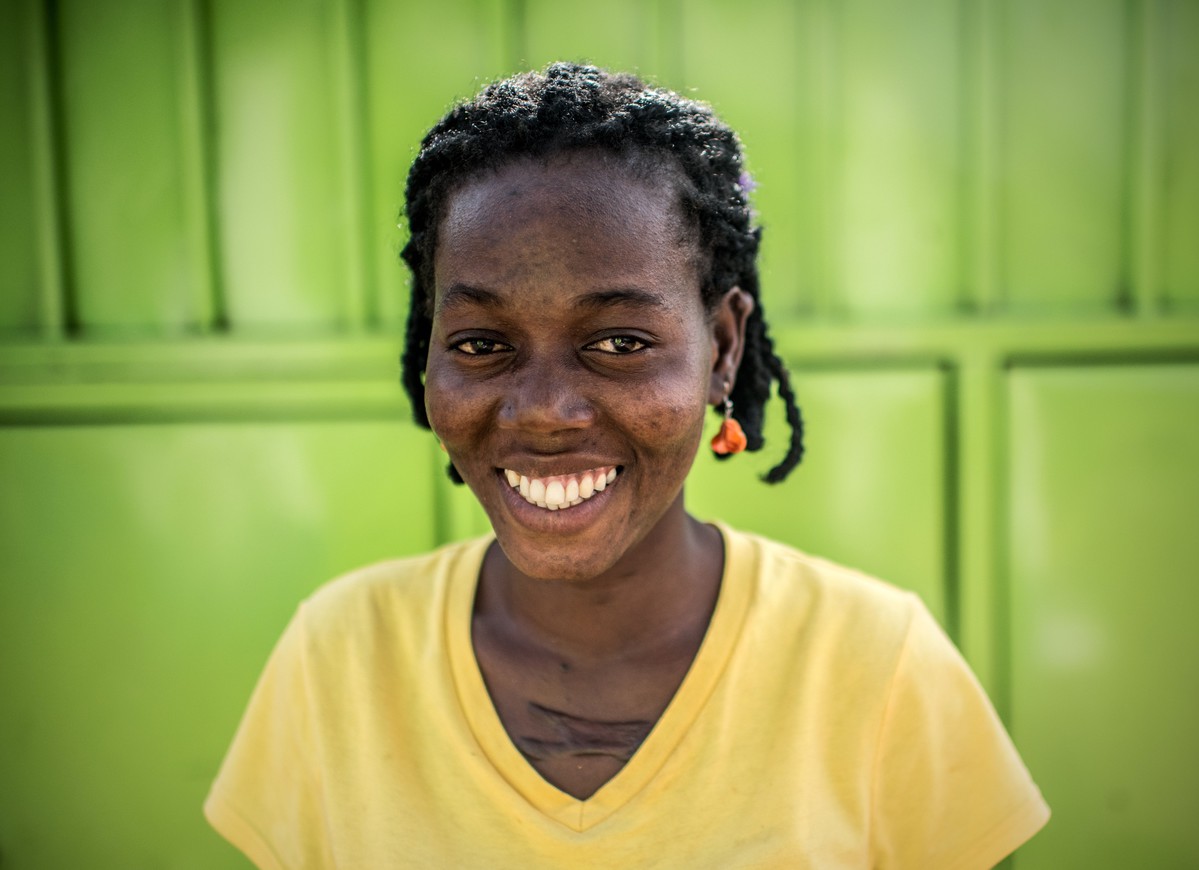
A sex worker's story
"I’m 25-years-old and a mother of two children. I lost my parents during the war, so I grew up alone. I ended up dropping out of school and I went for sex working. I am selling myself in order for me to sustain a living. "My second born is 10 months old and my first born is 7 years. He’s at home with me because I have no money to pay for his school fees. "I heard about Reproductive Health Uganda a few years ago but I couldn’t access it until they did their outreaches where I was staying. I stay far from town. "I came purposely here to RHU for Hepatitis B testing and also counselling because I have so many personal problems. I’m also on family planning and about to start using an IUD, I want to get that from here now also. "I like coming here, I’m satisfied with all the services because it's free of charge, they’re so caring, the way that they handle people. They handled us in a good way, they know how to talk to us. I’m so happy about the way I was welcomed here. Follow a day in the life of our team and clients in Gulu, Uganda 07:00 08:00 9:00 10:00 11:00 12:00 13:00 14:00 15:00 16:00 17:00 22:00 Prev Next 7am: The team prepare for the long day ahead "Every year tens of thousands of Ugandans come to our clinic. Everyone is welcome. Here are just a few of the people that we served in one day last month." READ MORE 8am: Nancy, 19, becomes a volunteer "I was suffering but when I came here, I was treated and I got better. Now I'm inspired to volunteer here" READ MORE 9am: Monica, 25, a sex worker's story "I am sex working. I came here for Hepatitis B testing and also counselling. I have so many personal problems, but here….they’re so caring." READ MORE 10am: Jane, 23, saved by family planning "After multiple miscarriages, family planning here has helped me a lot. I'm glad we've been able to space the number of children we've had. I am not growing old, I am fresh." READ MORE 11am: Vicky, handling disabilities "I'm deaf so accessing services is hard, but here they really try to speak in sign language." READ MORE 12pm: Dorcus, first time patient "This is the first time I've ever come here, I like the service. They give good counselling so I recommend coming." READ MORE 1pm: Christine, 45, a grandmother's tale of living with HIV "I am living with HIV and had HPV. They treated me and now I'm free of cervical cancer." READ MORE 2pm: Lilian, struggling mother of six with sickle cell " I have sickle cell disease and so do all my children. I want to have my tube removed so that I don't get pregnant again but I don't know if my husband will allow it." READ MORE 3pm: Brenda and Francis get fertility treatments "Fertility treatment is a sensitive issue in Uganda but they help us a lot and we get proper treatment." READ MORE 4pm: Joyce, 25, repected regardless of her disability "I realised that at this place they don't segregate. Us people with disabilities have challenges at the main hospitals. You go there, people around look at you as if you are not a human being and you don't fall sick." READ MORE 5pm: Mobile clinic provides outreach services to remote villages "Our outreach to remote communities is a 'one-stop-centre'. We give family planning, vaccines for HPV, malaria, and Hepatitis B, HIV testing and more." READ MORE 22pm: Still giving the last client our very best "Together, we have great teamwork. Sometimes we're still working up to 10pm because we never chase out our clients. We’ll never close the place when we have a client inside. People come when they have no hope." READ MORE
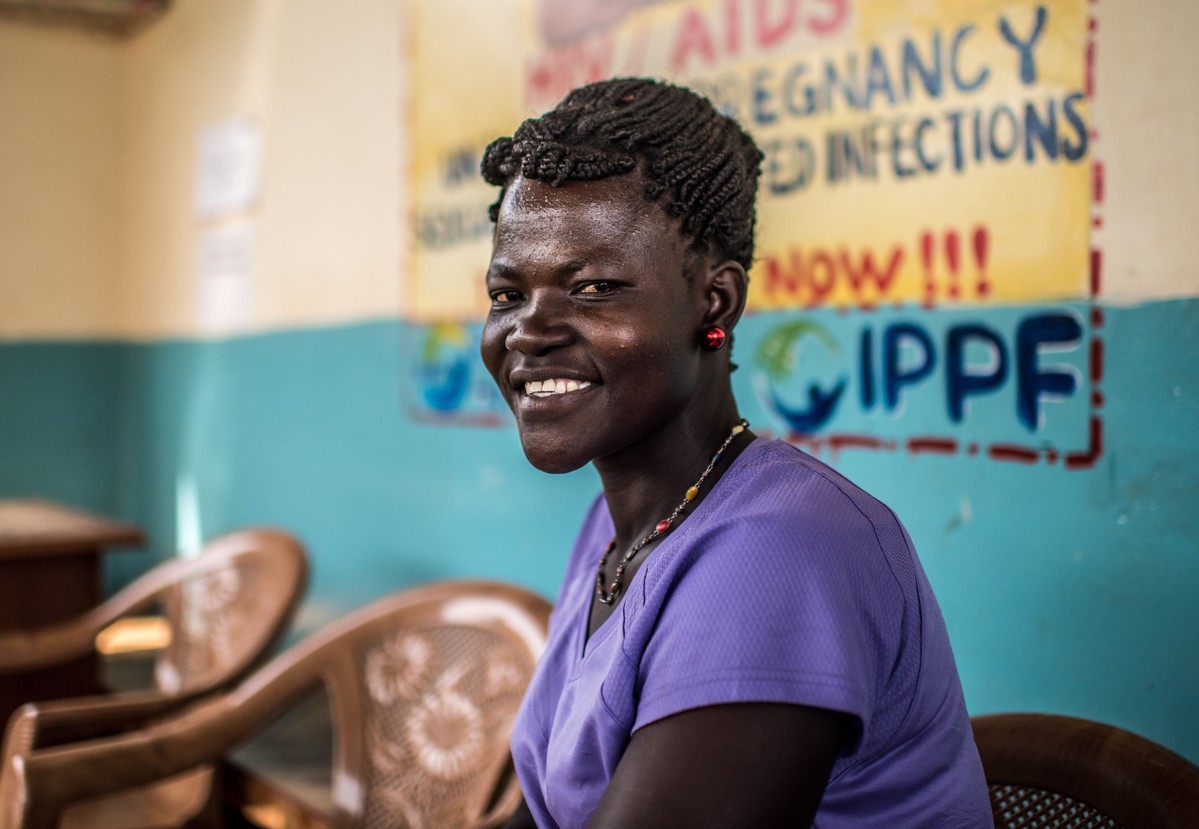
A husband and wife journey
23-year-old Jane Atenyo Franca is a mother of two. She got pregnant at school when she was 17. Her boyfriend left her and she was forced to drop out of education. She later married someone else who already had two wives but left him after suffering multiple miscarriages. She has since married again and had a second child. She learnt about RHU’s Gulu Clinic after attending a health forum that the clinic had organised in her village. “They talked about family planning, HIV, and they talked about very many diseases. “I decided to come back for family planning. I came back with my husband and we had counselling together. We agreed to go for the implant method. “My husband was initially worried about being seen by other people. He was worried that people might think we had a sexually transmitted disease but I talked to him about reproductive health and about the importance of not having too many children. “I am glad that we have been able to space the number of children we have. “Family planning has helped me a lot. Some of my friends have had many children and they seem old and tired. I am not growing old, I am fresh. “Some people used to say that you would bleed until you die with an implant but there is nothing wrong with me: I am free and fresh.” Atenyo Franca Jane said she now goes to the clinic for a range of services. “I am back today because I have pain in my abdomen. I also have a swollen foot.” She said she would recommend RHU and Gulu Clinic to all her friends because the staff were friendly, welcoming and gave good advice. Follow a day in the life of our team and clients in Gulu, Uganda 07:00 08:00 9:00 10:00 11:00 12:00 13:00 14:00 15:00 16:00 17:00 22:00 Prev Next 7am: The team prepare for the long day ahead "Every year tens of thousands of Ugandans come to our clinic. Everyone is welcome. Here are just a few of the people that we served in one day last month." READ MORE 8am: Nancy, 19, becomes a volunteer "I was suffering but when I came here, I was treated and I got better. Now I'm inspired to volunteer here" READ MORE 9am: Monica, 25, a sex worker's story "I am sex working. I came here for Hepatitis B testing and also counselling. I have so many personal problems, but here….they’re so caring." READ MORE 10am: Jane, 23, saved by family planning "After multiple miscarriages, family planning here has helped me a lot. I'm glad we've been able to space the number of children we've had. I am not growing old, I am fresh." READ MORE 11am: Vicky, handling disabilities "I'm deaf so accessing services is hard, but here they really try to speak in sign language." READ MORE 12pm: Dorcus, first time patient "This is the first time I've ever come here, I like the service. They give good counselling so I recommend coming." READ MORE 1pm: Christine, 45, a grandmother's tale of living with HIV "I am living with HIV and had HPV. They treated me and now I'm free of cervical cancer." READ MORE 2pm: Lilian, struggling mother of six with sickle cell " I have sickle cell disease and so do all my children. I want to have my tube removed so that I don't get pregnant again but I don't know if my husband will allow it." READ MORE 3pm: Brenda and Francis get fertility treatments "Fertility treatment is a sensitive issue in Uganda but they help us a lot and we get proper treatment." READ MORE 4pm: Joyce, 25, repected regardless of her disability "I realised that at this place they don't segregate. Us people with disabilities have challenges at the main hospitals. You go there, people around look at you as if you are not a human being and you don't fall sick." READ MORE 5pm: Mobile clinic provides outreach services to remote villages "Our outreach to remote communities is a 'one-stop-centre'. We give family planning, vaccines for HPV, malaria, and Hepatitis B, HIV testing and more." READ MORE 22pm: Still giving the last client our very best "Together, we have great teamwork. Sometimes we're still working up to 10pm because we never chase out our clients. We’ll never close the place when we have a client inside. People come when they have no hope." READ MORE
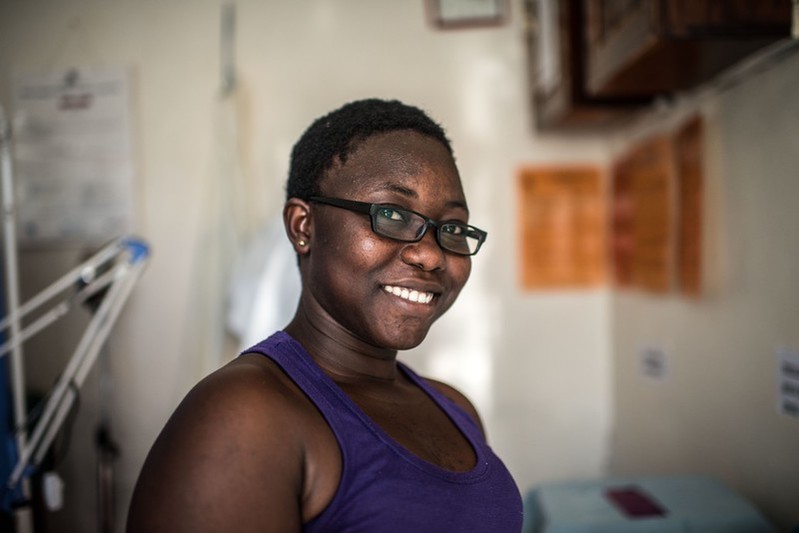
Youth volunteers leading the change in Uganda
Nancy Lakisa, a 19-year-old nursing student, volunteers at Reproductive Health Uganda Gulu branch. Nancy first went to the clinic as a client when she was suffering from a burning urinary tract infection. RHU clinics offer integrated youth-friendly services to encourage young people to use health services and staff have been trained to listen and offer services to adolescents with ease and respect. “When I came for the service, I was welcomed, I felt at home because the service provider handled me in a very good way. Though I was afraid of telling her what was happening to me but the way she was talking to me, I really got that courage and explained to her everything. "I am inspired to be a caring nurse and now I spend my holiday time at the clinic as a volunteer. I really admired how they do their things and I really wanted to learn more about reproductive health." Nancy said her experience had changed her life. “I had many boyfriends, I used not even to care whether somebody talked me. I didn't even used to respect my mum when she tried to advise me but I had counselling about that. I only have one life. Gulu is changing the lives of many people." Follow a day in the life of our team and clients in Gulu, Uganda 07:00 08:00 9:00 10:00 11:00 12:00 13:00 14:00 15:00 16:00 17:00 22:00 Prev Next 7am: The team prepare for the long day ahead "Every year tens of thousands of Ugandans come to our clinic. Everyone is welcome. Here are just a few of the people that we served in one day last month." READ MORE 8am: Nancy, 19, becomes a volunteer "I was suffering but when I came here, I was treated and I got better. Now I'm inspired to volunteer here" READ MORE 9am: Monica, 25, a sex worker's story "I am sex working. I came here for Hepatitis B testing and also counselling. I have so many personal problems, but here….they’re so caring." READ MORE 10am: Jane, 23, saved by family planning "After multiple miscarriages, family planning here has helped me a lot. I'm glad we've been able to space the number of children we've had. I am not growing old, I am fresh." READ MORE 11am: Vicky, handling disabilities "I'm deaf so accessing services is hard, but here they really try to speak in sign language." READ MORE 12pm: Dorcus, first time patient "This is the first time I've ever come here, I like the service. They give good counselling so I recommend coming." READ MORE 1pm: Christine, 45, a grandmother's tale of living with HIV "I am living with HIV and had HPV. They treated me and now I'm free of cervical cancer." READ MORE 2pm: Lilian, struggling mother of six with sickle cell " I have sickle cell disease and so do all my children. I want to have my tube removed so that I don't get pregnant again but I don't know if my husband will allow it." READ MORE 3pm: Brenda and Francis get fertility treatments "Fertility treatment is a sensitive issue in Uganda but they help us a lot and we get proper treatment." READ MORE 4pm: Joyce, 25, repected regardless of her disability "I realised that at this place they don't segregate. Us people with disabilities have challenges at the main hospitals. You go there, people around look at you as if you are not a human being and you don't fall sick." READ MORE 5pm: Mobile clinic provides outreach services to remote villages "Our outreach to remote communities is a 'one-stop-centre'. We give family planning, vaccines for HPV, malaria, and Hepatitis B, HIV testing and more." READ MORE 22pm: Still giving the last client our very best "Together, we have great teamwork. Sometimes we're still working up to 10pm because we never chase out our clients. We’ll never close the place when we have a client inside. People come when they have no hope." READ MORE
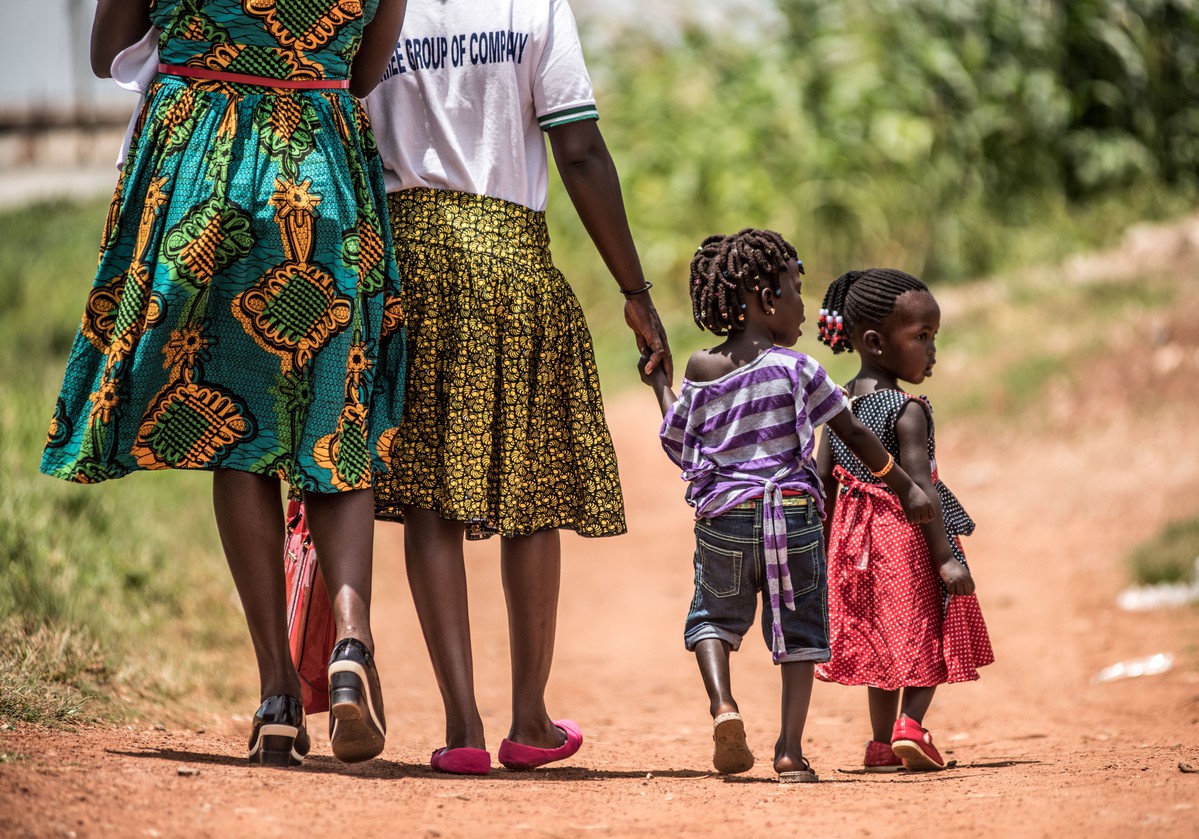
Putting clients first: a one-stop shop of outreach services in Gulu, Uganda
.p { text-align: justify; align: left; } Uganda has one of the highest fertility rates in the world, and as a result, it also has one of the most youthful populations - more than half of Ugandans are under the age of 15. Over 78% of the population is below the age of 30. The population is growing at a rate of more than 3% per year. Figures show that women – on average - give birth to two more children than they want. More than half of pregnancies in Uganda are unintended, and nearly a third of these end in abortion according to figures from the Guttmacher Institute. It also says that in Uganda approximately one in every 19 women has an abortion per year and with abortion being highly restricted most of these are unsafe. This rate is far higher than the average for East Africa and reflects the high level of unmet need for contraception in the country. Approximately, 755,000 unintended pregnancies occur annually out of which 297,000 result in unsafe abortions. Unintended pregnancy is common in Uganda, leading to high levels of unplanned births, unsafe abortions, and maternal injury and death. Women in the eastern and north regions had the highest proportions of unplanned births (50–54%) the high levels of unintended pregnancy and unplanned births in Uganda can be attributed primarily to nonuse of contraceptives by women who do not want a child soon. More than 80% of the population lives in rural areas. Millions of people still do not have access to a health clinic, and family planning, especially long term and permanent methods, is not available to the vast majority who live in rural and hard-to-reach areas. IPPF’s Member Association, Reproductive Health Uganda (RHU), is working hard on the ground to tackle these issues. It takes the approach that it offers people as many services as possible at its clinics so you can get your health needs met in the same place. This means you might go to a clinic for an HIV test but leave having being offered a range of contraception plus other tests for other sexually transmitted diseases or cancer. RHU has a network of clinics across the country and takes its services out to remote and rural areas through its mobile clinics. No one is left out by RHU. Whether people are poor or vulnerable or hard to reach, RHU makes sure they have access to all of the services they need. We visited one of RHU’s health facilities in northern Uganda to get a better idea of how our work makes a real difference to people and their lives. We wanted to hear stories about what difference getting contraception, counselling and testing meant in reality. For many people it is life-changing. Thousands of people go in and out of Gulu Clinic every year and thousands more get services through Gulu’s mobile clinics. Last year alone Gulu Clinic had 229,812 family planning clients and provided 769,707 sexual health services, 390,488 of those were to young people. It offers a ‘one-stop-shop’ approach which makes it easier for clients to get a range of integrated services. They can go to a clinic for a check-up but end up getting contraception, counselling and a whole range of other tests and treatments. These include family planning, infertility management, cervical cancer screening, cryotherapy, youth friendly services, sexually transmitted infections and general sexual and reproductive health (SRH). Denis Bongonyinge, who has worked at Gulu Clinic for four years, said: “For us our goal is to ensure that this place is just a one stop centre. When a client comes in, he goes out when he has got a very big package of services within the clinic. Even if we go out, we give very many services. Denis said he had come across a range of issues among the clients. Issues like high rates of teenage pregnancies, sexually transmitted infections and gender based violence which could all be dealt with at the centre. He added that he believed Gulu had managed to offer such a range of services because of its willingness to work with other partners interested in scaling up uptake of family planning and generally sexual and reproductive health services. Gulu Clinic is also inclusive to a wide range of people across the community and this includes sex workers and disabled people. Vicky Acora is deaf and has had problems getting services at other hospitals. But, she says about RHU: “They are really most welcoming and they try to communicate even in the little sign language they know. They are really very warm” She says she has since been advising other deaf persons to seek services at Reproductive Health Uganda because of the quick services. “I encourage other people to come here because it is fairer. I encourage other disabled people who use wheelchairs not only the deaf to come and access services here because it is really accessible for those who have a disability.” Follow a day in the life of our team and clients in Gulu, Uganda 07:00 08:00 9:00 10:00 11:00 12:00 13:00 14:00 15:00 16:00 17:00 22:00 Prev Next 7am: The team prepare for the long day ahead "Every year tens of thousands of Ugandans come to our clinic. Everyone is welcome. Here are just a few of the people that we served in one day last month." READ MORE 8am: Nancy, 19, becomes a volunteer "I was suffering but when I came here, I was treated and I got better. Now I'm inspired to volunteer here" READ MORE 9am: Monica, 25, a sex worker's story "I am sex working. I came here for Hepatitis B testing and also counselling. I have so many personal problems, but here….they’re so caring." READ MORE 10am: Jane, 23, saved by family planning "After multiple miscarriages, family planning here has helped me a lot. I'm glad we've been able to space the number of children we've had. I am not growing old, I am fresh." READ MORE 11am: Vicky, handling disabilities "I'm deaf so accessing services is hard, but here they really try to speak in sign language." READ MORE 12pm: Dorcus, first time patient "This is the first time I've ever come here, I like the service. They give good counselling so I recommend coming." READ MORE 1pm: Christine, 45, a grandmother's tale of living with HIV "I am living with HIV and had HPV. They treated me and now I'm free of cervical cancer." READ MORE 2pm: Lilian, struggling mother of six with sickle cell " I have sickle cell disease and so do all my children. I want to have my tube removed so that I don't get pregnant again but I don't know if my husband will allow it." READ MORE 3pm: Brenda and Francis get fertility treatments "Fertility treatment is a sensitive issue in Uganda but they help us a lot and we get proper treatment." READ MORE 4pm: Joyce, 25, repected regardless of her disability "I realised that at this place they don't segregate. Us people with disabilities have challenges at the main hospitals. You go there, people around look at you as if you are not a human being and you don't fall sick." READ MORE 5pm: Mobile clinic provides outreach services to remote villages "Our outreach to remote communities is a 'one-stop-centre'. We give family planning, vaccines for HPV, malaria, and Hepatitis B, HIV testing and more." READ MORE 22pm: Still giving the last client our very best "Together, we have great teamwork. Sometimes we're still working up to 10pm because we never chase out our clients. We’ll never close the place when we have a client inside. People come when they have no hope." READ MORE
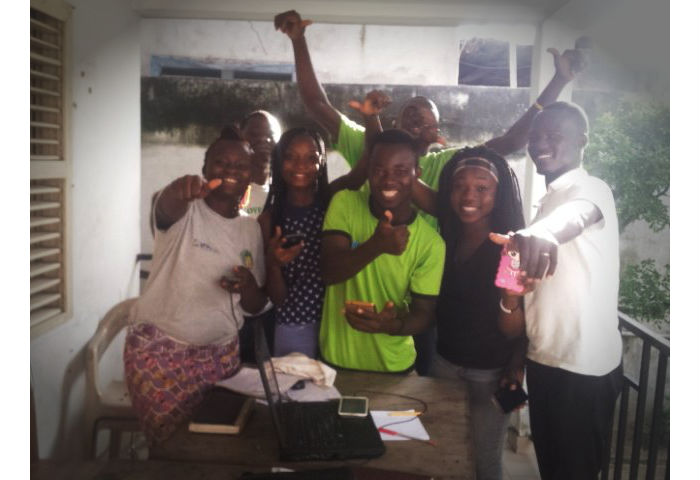
Young people talk #SexEd on Twitter
To celebrate the Day of the Girl and to mark the publication of two resources on Comprehensive Sexuality Education, IPPF organised a Twitter Chat inviting young people to share their opinions and experience of sexuality education. The response was overwhelming: more than 150 people from all over the world took part in an intense conversation in three languages on sex education, with a special focus on gender equality and girls' empowerment. A1 #CSE empower girls with basic education about their bodies and rights to take control over their future #KnowItOwnIt @ippf — Arshpreet Kaur (@arshpreetk2) October 11, 2016 A1 Comprehensive Sexuality Education allow girls to know their bodies and learn about relationships. It gives them power! #knowitownit pic.twitter.com/Ovo5NjquWe — Génesis Luigi (@Gene_Luigi) October 11, 2016 A1 Gender equality is key - when girls win, we all win! #EUgirlsweek #KnowItOwnIt #DayoftheGirl @ale_matei @WorldVisionEU @FrazerGoodwin pic.twitter.com/v8j28tTVt4 — IPPF Europe (@ippfen) October 11, 2016 #maj229,#KnowItOwnIt #DayOfTheGirl L'ESI permet de préparer la fille à une meilleure vie en société.@ippf @hlungbo https://t.co/iGt4Rdmqx1 — Eustache Ulrich DEDO (@UlrichDedo) October 11, 2016 CSE can help to empower young girls because no girl can drop out of school becuse of pregnancy #KnowitOwnIt #FPAM_ — Prisca Gondwe (@Pri1Gondwe) October 11, 2016 Las niñas deben conocer sus derechos sexuales y derechos reproductivos en lugar de mitos y tabúes #KnowItOwnIt #DiaInternacionalDeLaNina pic.twitter.com/hm1UAMTQpY — PROFAMILIA (@ProfamiliaCol) October 11, 2016 As IPPF often highlighted, school rarely provides young people with the information they need: @ippf @ippfen @IPPF_WHR A2: They didn't teach these things in school. All things 'sex' is still taboo in the Caribbean region #KnowItOwnIt — Khadijah Moore (@rainn_fall) October 11, 2016 @ippf @ippfen @IPPF_WHR Q2: we learn the sex life of the rooster and hen ( true story) — LineKaabi (@Lili19091992) October 11, 2016 not all of it.most of the info at school was overshadowed with the aspect of abstinence, we were told we would learn when older #KnowitOwnit https://t.co/Z6fj16d5uW — OlgahDaphyn_Namukuza (@daphyn_olgah94) October 11, 2016 Not very much..the Malawian culture somehow limits the level of knowledge young people get #knowitownit https://t.co/5ksxmcjqLO — pepsymitawa (@pepsymitawa1) October 11, 2016 #KnowItOwnIt #DayoftheGirl la biologie nous informe brièvement mais reste tabou et n'explique pas tout en profondeur https://t.co/e0V5jXlBP1 — Annick Avonon (@AAvonon) October 11, 2016 learned abt biology.NOT empowered enouf 2 understand my body&mak critical decisions.I stand w/ IPPF. Need CSE in school! #KnowItOwnit https://t.co/26P0OQRHWf — Nsensele Faida Julie (@Faida_juliette) October 11, 2016 A2: I was "cyberschooled"- my health book featured one paragraph about sex which included: "Being raped is not fun." That's it. #KnowItOwnIt — Mary (@msmaryandes) October 11, 2016 .@ippf I agree! Comments like that - in the guise of "education" - harm both girls AND boys! #KnowItOwnIt — Mary (@msmaryandes) October 11, 2016 Still, young people strongly feel that an open discussion about sex and pleasure is necessary, because it helps open the way to understand consent and equality in relationships: Q3: Is talking about sexual pleasure important for girls? #DayoftheGirl #KnowItOwnIt @ippfen @IPPF_WHR pic.twitter.com/m3ediIlRxf — IPPF Global (@ippf) October 11, 2016 @ippf @ippfen @IPPF_WHR A3: Talking pleasure is fundamental. Girls should express their sexual right and not be objectified for doing so — YAM Dominica (@yam_dominica) October 11, 2016 #KnowItOwnIt Sexual pleasure for girls must be taught to empower against #objectification and differentiate between #consent and #assault — TWConfidential (@TWConfidential) October 11, 2016 Good point. If girls don't understand that sex can be pleasurable for them, how can they fully understand the idea of consent? #KnowItOwnIt https://t.co/R7FVepYIuP — Mary (@msmaryandes) October 11, 2016 @ippf @ippfen @IPPF_WHR We must ensure that girls understand that pleasure is a part of their sexual rights. #KnowItOwnIt — Khadijah Moore (@rainn_fall) October 11, 2016 Q4. Why should young people get info about Sex? #KnowItOwnIt #DayOftheGirl @ippfen @IPPF_WHR @ippfar pic.twitter.com/999qeH5zSO — IPPF Global (@ippf) October 11, 2016 A4: Young people need information about sex so they can fully plan their own lives and futures and know ALL their options. #KnowItOwnIt — Johns Hopkins CCP (@JohnsHopkinsCCP) October 11, 2016 R4 pour permettre aux filles d'être au même niveau d'informations en matière de sexualité et en parler aisément #DayOfTheGirl #KnowItOwnIt — MAJ/BENIN (@Majbenin) October 11, 2016 alot of pregnancies can be to attributed to a basic lack of info by girls #KnowitOwnit #CSE #DayoftheGirl https://t.co/QK9uOFVBKt — OlgahDaphyn_Namukuza (@daphyn_olgah94) October 11, 2016 R4: La gente joven habla sobre el sexo: necesitamos asegurar que compartan información veraz y libre de discriminación #DiadelaNiña — IPPF/WHR (@IPPF_WHR) October 11, 2016 @IPPF_WHR Young people need to know about safe sex and pleasure because it is crucial for our well-being #KnowitOwnit — YSAFE Youth network (@YSAFE) October 11, 2016 Not only do young people want to have sex education, they want and need to shape the CSE programmes, in many different and creative ways: have you ever thought about music to share sexual health information? They did! Q5: How can young people push for the #CSE they want? #DayoftheGirl #KnowItOwnIt @ippfen @IPPF_WHR pic.twitter.com/kURF8qsAf7 — IPPF Global (@ippf) October 11, 2016 Music can be a best way! for exampl try to describ body by singing! #KnowItOwnIt #DayoftheGirl @Faida_juliette @IPPFAR @ippf @JAPFBurkina https://t.co/y0PuBmKDBH — GANEMTORE Fidele B (@GanemtoreB) October 11, 2016 "@ippf: Q5: How can young people push for the #CSE they want? #DayoftheGirl #KnowItOwnIt animation quotidienne dans les CSE. — DAGBA Brigitte (@brigittedagba) October 11, 2016 A5 adult allies: lets advocate for girls, but more importantly lets make space for girls to advocate for themselves #DayofGirl #KnowitOwnit — Devan (@devansiobhan) October 11, 2016 @hlungbo @Faida_juliette @ippf YP should use all available platforms to push for CSE like media campaigns ,advocacy activities #KnowItOwnIt — Youth ActionMovement (@YAMuganda) October 11, 2016 A5: Young people in India are advocating for integrating age-appropriate #CSE with the school curriculum #KnowItOwnIt — Arshpreet Kaur (@arshpreetk2) October 11, 2016 we need to find sexual education innovative ways to reach those out-of-school, otherwise marginalized #KnowitOwnit @ippf @ippfen @RHUganda — Kintu kenny (@KintuKenny) October 11, 2016 We closed the conversation talking about the need for (and lack of) gender equality in education: everyone agrees that to be comprehensive, sexuality education must be equal, and we should also work on that direction. Last question, Q6: Is sexuality education equal for girls and boys? #DayoftheGirl #KnowItOwnIt pic.twitter.com/tvGAwG3XNa — IPPF Global (@ippf) October 11, 2016 A6: Sexual education is absolutely equal in importance for boys and girls. Unfortunately, it is not provided equally to girls. #KnowItOwnIt — Johns Hopkins CCP (@JohnsHopkinsCCP) October 11, 2016 @TWConfidential unfortunately it's not only in your area, but Sexuality Education should be inclusive!!! #KnowItOwnIt #DayoftheGirl — IPPF Global (@ippf) October 11, 2016 @ippf We can't talk abt boys without talking abt girls. Boy child education needs to be enhanced too inorder to reduce GBV — Salim Bakari (@bakarisalimn) October 11, 2016 Si la #EducSexual no es igual para niños y niñas, entonces no es integral. La #EducSexual se centra en la igualdad #DiadelaNiña #KnowItOwnIt — Casa FUSA (@Grupofusa) October 11, 2016 One hour was not sufficient to give space to everyone in a conversation that could have lasted days, but it was enough to reach more than 313,000 people with CSE messages and to give more proof that young people want, need, and fight for Comprehensive Sexuality Education. What are we waiting for? — IPPF Global (@ippf) October 11, 2016 @ippf on vous remercie aussi.Tant qu'il reste à faire,rien est encore fait.du courage #KnowItOwnIt#DayoftheGirl pic.twitter.com/i9ObnAsRru — Tchakirou Akedele (@tchakirou1993a) October 11, 2016
Pagination
- Previous page
- Page 9
- Next page






